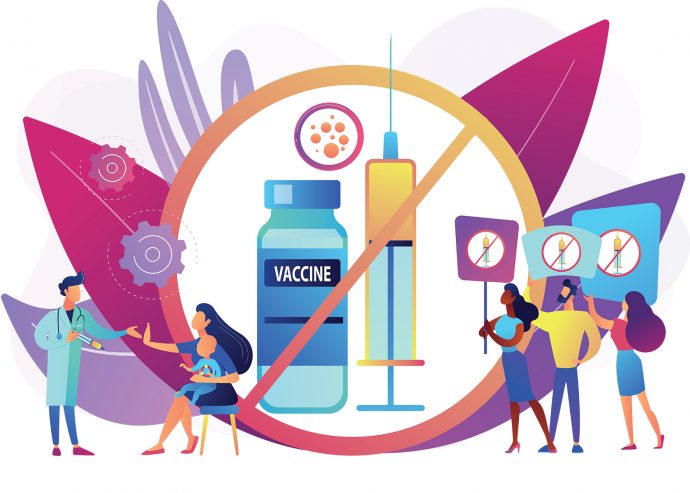Have you heard about the increase in vaccine-preventable diseases (VPDs)? Diseases that have come close to being stamped out have abruptly resurfaced and are now being reported in the news. These include diseases such as diphtheria, measles, pertussis and tetanus.
Stubborn refusal
Over the years, anti- vaccination sentiments have been on the rise. Some parents are refusing to vaccinate their children because of non-scientific reasons, including religious, personal or philosophical beliefs, and erroneous safety concerns. These have all been debunked numerous times, yet fear- mongers continue to beat this drum, thus perpetuating these myths.
This has led to measles reappearing in Albania, Czech Republic, Greece, the United Kingdom and in the United States, where it had previously been declared eradicated. Malaysia faces a similar situation with diseases that were on the verge of being eradicated making a firm comeback, including diphtheria, pertussis and measles. There have even been several reported deaths as a result of increasing refusal by parents to vaccinate their children.
Building herd immunity
Unvaccinated kids do not have any form of direct protection and remain fully vulnerable to infection if exposed. The only thing that protects them from these diseases is something called “herd immunity”, which works best only when a large majority of the population is vaccinated (>95% for measles).
This helps to create a “buffer” that prevents the easy spread of the disease, thus protecting other unvaccinated and/or vulnerable individuals such as those with weakened or compromised immune systems. The high incidence of vaccine refusal weakens the effect of herd immunity which may cause it to become ineffective in preventing outbreaks from occurring.
Poor reasons for vaccine refusal
The most common reason for parents refusing vaccinations for their children is because of the influence of other people or what they read online or in the media. These stories are often sensationalised to make them more “juicy” and often highlight rare or isolated incidences where a child suffers from an unforeseen side effect of a vaccine. They are then connected with other myths or reports about various problems such as vaccines containing dangerous chemicals (e.g. mercury, thimerosal) or causing brain damage or behavioural problems – none of which are true!
Other smaller fears that may lead to refusal (e.g. fear of needles, worry of catching the very disease vaccinated against, natural immunity is better, no need for it since the disease has been eliminated, etc) are also part of the chain of myths that stubbornly stay afloat.
It is ignorance that lies at the root of vaccine refusal, so read up on the facts and ensure you get your information only from credible sources! The “University of Google” is a poor choice as it is not easy to find credible sources of information unless you know where to look.
Don’t take what you read or hear at face value, especially if it comes from someone who heard it from someone else! Make it a point to verify the authenticity of any claim by checking with your healthcare provider or paediatrician.
Prevailing myths
A now-debunked paper by Dr Andrew Wakefield that linked the MMR vaccine with autism led to the myth that ‘vaccines cause autism’. This is blatantly untrue! Vaccines do not cause autism in vaccinated children, nor are they a conspiracy against any race!
The halal status of vaccines should also not be an issue as the National Fatwa Council has issued a statement that vaccines provided by the government are all permissible. The same can be said for vaccines obtained from private hospitals – Jabatan Kemajuan Islam Malaysia (JAKIM) issued a press statement on June 24, 2016 stating that it is permissible to receive vaccinations as they are meant for the purpose of preventing potentially fatal diseases, and even encourages parents to take the necessary steps to ensure the safety and health of their children.

Before you even think of refusing to vaccinate your child, consider the risks and complications of the disease first. If you still have any fears, worries, or doubts, please talk to your child’s paediatrician or your healthcare provider and get the right information. Rest assured that vaccination works, and it has been proven to prevent diseases and potentially save lives.
An educational contribution by Malaysian Paediatric Association.






Comments